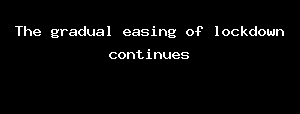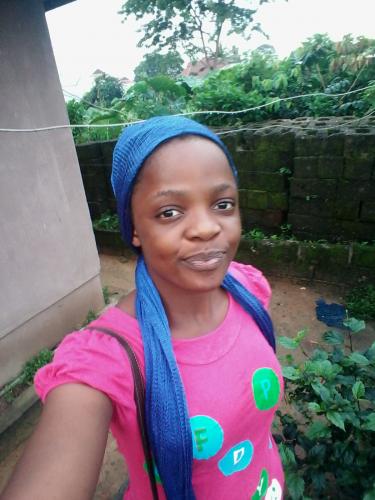profile/2538IMG_20200916_065138.jpg
Leilani
The Gradual Easing Of Lockdown Continues
Lagos State Governor, Babajide Sanwo-Olu, has approved the full reopening of worship centres in the state.
Sanwo-Olu made the announcement at a briefing in Lagos on Saturday.
Mosques can now hold their prayers five times daily while churches can also commence weekly services.
The governor warned religious centres not to flout safety protocols ordered by the government.
They were all directed to close for service after the outbreak of coronavirus in Lagos.
Sanwo-Olu announces dates for reopening of Churches, Mosques in Lagos CAN reacts as Lagos approves reopening of churches COVID-19: Lagos churches should open during weekdays - Bishop Oyedepo tells Gov. Sanwo-Olu NEWS: Visa ban: Nigerian govt laments sanctioning of electoral offenders by United States Pastor Tunde Bakare warns churches against reopening despite Lagos govt's announcement Church reopening: CAN appeals for multiple services, children, others' participation COVID-19: Sanwo-Olu gives conditions to reopen churches, businesses in Lagos
profile/2538IMG_20200916_065138.jpg
Leilani
A Guide To Successful Interviews
Preparing for Interviews
CONVERSATION SKILLS
INTERVIEW FEARS

Writing requires journalists who can interview a source, take notes on the discussion, transcribe their notes and their memory of what was said, and who can then arrange it and convey it to the reader.
Many otherwise skilled journalists fear the interview. Some don't know how to prepare for or set up an interview. Some aren't sure how to conduct interviews. Others lack confidence in their ability to carry on a conversation. These are all fears that can be eased by practice and effort. The mechanical or equipment aspects of interviewing are easily learned.
Interviews are set up in three basic phases:
1. Pre-Interview
2. The interview
3. Post-interview
The Pre-Interview phase can be broken into four parts:
1. Learn about the source
2. Arrange the interview
3. Research topic and decide on the angle
4. Write questions
QUESTIONS
When an article has been assigned, the reporter should be asking:
- What is the topic?
- What is the purpose of the article?
- When is it due?
- What sources of information exist?
- Who should be interviewed?
PRE-INTERVIEW STAGE 1

LEARN ABOUT THE SOURCE
When interviews are necessary and the reporter has identified the person they need to interview, they should find out what they can about the source. Exactly what they will need to know about the subject depends on whether the interview is for a news story or a feature.
IS THE SOURCE AN AUTHORITY?
What is their professional and scholastic background; hobbies; interests?
What do they know about your subject and how do they feel about it?
FLEXIBILITY
Try to fit the interview into their schedule. If you are working against a deadline, tactfully explain, and ask if there is a time they could fit you into their schedule. Be prepared to interview early, late or during lunch.
Questions and Behaviour
QUESTIONS

It's a good idea to avoid putting words into the interviewee's mouth. Questions which begin with or end with comments such as: "Don't you think...." or "Wouldn't you say...." generally indicate a thought the writer wants to attribute to the source. Such questions indicate to your source that you have already written the article and just want to attribute it to him. It also puts the interviewee in a 'yes' or 'no' answering mood. This makes getting anecdotes and the source's personality and additional thoughts next to impossible.
An easy way to avoid 'yes' and 'no' answers is to write your questions phased in the five Ws and H format. For example: "What do you think about...." or "Why is this project so important?" These questions put the source in a reflective, explanatory mood.
Artful note-taking enables the writer to jot down the main points and to also note the color or atmosphere of the interview. The writer can note the source's tone of voice, facial expressions, mannerisms, movements, physical appearance, clothing and many other things that will help him paint a vivid word picture of the subject.
Questions and Behaviour
CONDUCT
Among the most critical tasks of the actual interview is the absolute necessity of being on time. Never waste the source's time by making him wait. A related task is to not exceed the time limit you asked for.
If more information is needed, ask for another interview time. Always defer to the source's schedule. If the interview is running overtime and the source wants to continue, go ahead, but don't waste time.
Establishing rapport between the reporter and the source is a primary consideration during the interview. Since the real purpose of an interview is to get the subject to talk, not merely answer a list of prepared, well-researched questions. Rapport can make the difference between a great or a mediocre article.
One way to establish rapport is to be professional in every way. Be on time, look sharp and know the questions you want to ask (this allows the interview to range in a conversational way). Don't be too casual in manner; it's best to be a little formal when meeting someone for the first time. Don't invite yourself to sit down, wait until you're asked. In other words, conduct yourself as if you were a guest, as indeed you are.
And much more.....
Follow up for more articles
Thank you



